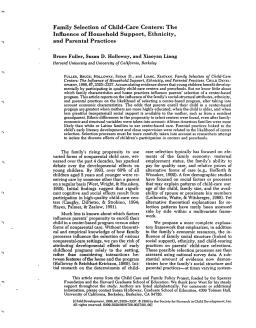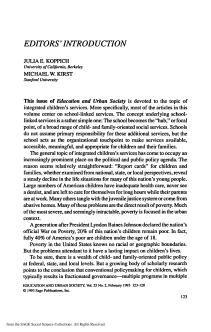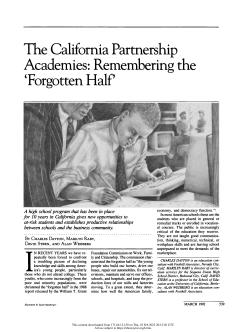The Influence of Household Support, Ethnicity, and Parental Practices
Published
Summary
An investigation of the family factors and practices that influence parents' choice of center-based programs for young children. Maternal education, child's age, and availability of social support were found to be significant factors in center selection. African-American families were more likely to choose center-based care than white or Latino families, and parental practices related to early literacy development and close supervision also affected center selection. The study highlights the importance of considering selection processes when assessing the effects of early childhood programs.
Editors' Introduction
Published
Summary
The concept of school-linked services is to make social services available to children and families through the school acting as an organizational touchpoint. This idea has become increasingly prominent due to the declining life situations of many American children, particularly those in urban areas, who face poverty-related issues like inadequate healthcare, juvenile justice involvement, and abusive homes.
Remembering the "Forgotten Half"
Published
Summary
US high school students, especially those who do not attend college, have been found to lack skills and knowledge necessary for the job market. The California Partnership Academies program has been developed to address this issue and has been adopted by over 50 high schools. The program has received support and positive evaluations. Factors contributing to the issue include societal changes, the education system, and changes in the labor market. If these issues are not addressed, the US risks falling behind international competitors and a lower standard of living.


